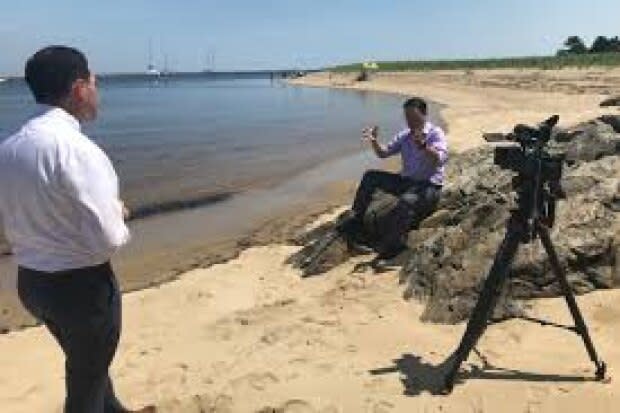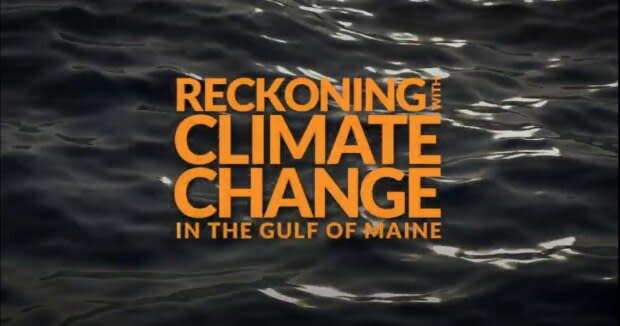Documentary warns of 'catastrophic' changes happening in Gulf of Maine
When Charles Tilburg was approached by the University of New England's communications team about making a documentary on climate change in the Gulf of Maine, he was immediately excited by the idea.
The professor of oceanography and director of the school of marine programs at the Maine university saw it as an opportunity to show people just how serious the situation is becoming in the gulf.
"I want them to be alarmed," Tilburg said, "I want them to realize that there has to be change to the status quo for us to address what's going on in the Gulf of Maine and, in fact, in the world's oceans."
Tilburg said the Gulf of Maine, which sits at the mouth of the Bay of Fundy, is warming faster than 99 per cent of the world's oceans, and the effects are already being seen, especially with the arrival of species not normally found in those waters..
"The lobstermen are finding seahorses in their lobster traps," Tilburg said. "They're bringing up blue crab, you know, crab that normally are in Virginia."

"Fishermen aren't able to get as many cod or haddock or any of the groundfish, so they're going out there and they're spending more time and more effort catching less fish.
"And this is happening now. I mean, lots of times when you talk about climate change, you talk about what's going to happen in the future, but our fishermen are seeing it now."
Tilburg said there are also more algal blooms, known as red tide, and more beach closures because of it.
A big, shallow bathtub
Scientists believe the Gulf of Maine is warming faster because it essentially acts as a shallow bathtub, where warm water from the Gulf Stream and nearby rivers are balanced out by cold water from the Labrador Current.
Think of it as a warm and cold water faucet, Tilburg said. But now the cold water faucet, the Labrador Current, is being turned down.
The gulf is now warming seven to eight times faster than it was 15 years ago.
Tilburg said people who live along the Bay of Fundy should be very concerned about what's happening in the Gulf of Maine.
He said that in the short term, say five or six years, the bay may actually see an increase in some fish species as they move north in search of colder waters.
But that's not likely to last.

"They can't go much farther north up into the Bay of Fundy, so these different populations are going to start migrating up north and more into the Arctic Ocean," said Tilburg.
"Long term, it's going to be catastrophic to the fish species that people in the Bay of Fundy normally fish for."
The documentary, titled Reckoning With Climate Change in the Gulf of Maine, features scientists and policy experts from the University of New England and other researchers in the state, local fishermen and policy makers in government.
Tilburg said it tries to stay away from statistics and numbers and instead tells the story of the Gulf of Maine.
'Be alarmed'
"They tried to get a whole swath of different people and perspectives on it, so that there's a piece that everyone's going to be interested in," Tilburg said.
The film also focuses on what people can do to help.
"I want them to think 'What can I, as a citizen of the United States or a citizen of Canada, actually do about it?' and be alarmed enough that they want to take action," Tilburg said.
"Like, I don't want them at the end to just be demoralized. I want them to realize we can make changes and we can mitigate the change."

"Where they can be the most effective is in two things: on the pressure that individuals put on companies so that they become more globally aware, and on their governments.
He said if the Gulf of Maine keeps warming, it will lose its lobster and groundfish.
"We're going to be invaded by blue crabs, all the populations in the Gulf of Maine are gonna change, and that's going to affect everyone in the Northeast," Tilsburg warned.
And it won't take long,
"This isn't going to happen over 50 to a 100 years. This is going to happen over 10 years."
The documentary will air on PBS in Maine on Thursday at 10 p.m. Atlantic time and again on Saturday at 3 p.m.

 Yahoo Movies
Yahoo Movies 
